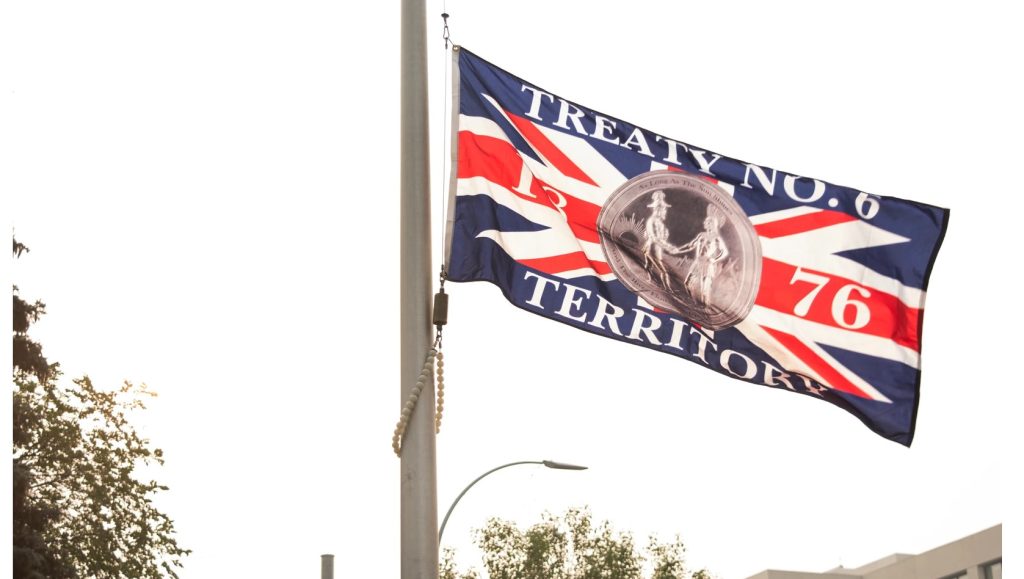Alberta’s Treaty 6 Nations declare state of emergency due to opioid crisis

Posted Jul 10, 2023 10:37 am.
Last Updated Jul 10, 2023 6:21 pm.
A state of emergency has been declared by the Confederacy of Treaty 6 Nations due to the ongoing opioid crisis.
In a release issued Monday, Grand Chief Leonard Standingontheroad called on the federal government to “intervene and offer more effective, flexible and long-lasting support.”
“Families, friends, and loved ones are being lost to this devastating crisis,” he said. “If harm reduction isn’t available, our people will die.”
The Chief said that Treaty No. 6 guarantees health care through the “medicine chest clause” which dictates that the federal government has an obligation to provide healthcare on an ongoing basis.
The Indigenous Health Equity Fund, which was announced in February, promised $2 billion in federal funding over 10 years — $200 million annually. The Nations say this information wasn’t made available to them by the province and “funding has not been provided.”
The Confederacy added it expects all levels of government to adhere and follow Treaty obligations.
Related stories:
-
Community, Indigenous drug rehab programs across West get $20M in federal fund
-
Alberta partners with Tsuut’ina Nation on 75-bed recovery facility
According to data compiled by the Confederacy, the rise in mortality rates due to opioid toxicity is seven times higher among Indigenous Peoples in Alberta.
Approximately half of the Indigenous people dying from drug toxicity are between the ages of 20 and 39, it added.
The gap between Indigenous and non-Indigenous life expectancy has grown over the past seven years, leading to an 18.2 years discrepancy, the Confederacy says.
Death rates attributed to opioid poisoning have “spiked” following the closure of safe consumption sites, it added, and 71 First Nations have declared an opioid crisis state of emergency. According to the Confederacy between 22 and 24 have received funding.
“Recovery treatment beds promised to First Nations are in most cases non-existent or inaccessible,” it claimed.
The Confederacy says it is “urging all levels of government to engage in meaningful consultation and collaboration with Treaty No. 6 Chiefs and communities, ensuring the inclusion of First Nations voices and perspectives.”
In addition, the Nations are asking for government to commit to long-term funding for “culturally-appropriate healthcare services, including mental health support, addiction treatment programs, and harm reduction initiatives to meet the specific needs of Treaty 6 peoples.”
In a statement to CityNews, Minister of Mental Health and Addiction Dan Williams says the federal government is dropping the ball in its support, adding the province is working on strengthening its relationships with Treaty 6.
“I agree with the Confederacy that it is time for the federal government to step up and provide more support to Nations facing addiction, as they have been absent in this conversation for far too long,” his statement reads.
“The federal government has failed to support First Nations to address addiction, and Alberta has been left to address the issues resulting from their failures.”
CityNews has contacted the federal Minister of Mental Health and Addictions for comment.








